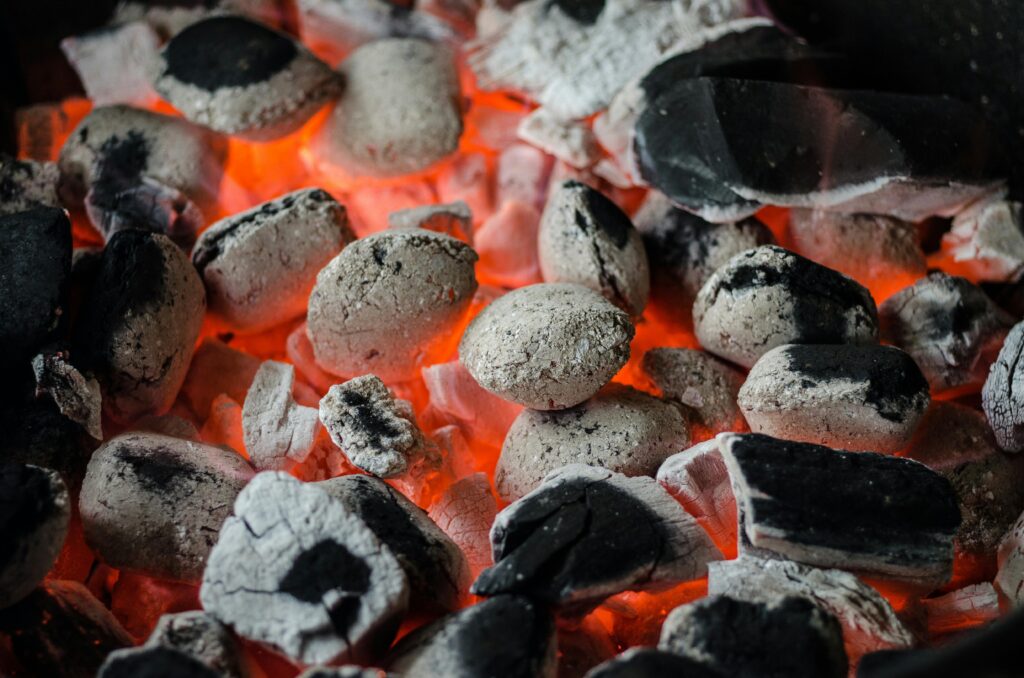
Here’s a breakdown of the key differences between charcoal and briquette barbecue:
Fuel Source:
- Charcoal: This is essentially pure wood that has been burned in a low-oxygen environment to create a form of carbon. Lump charcoal comes in larger irregular pieces, while there are also smaller charcoal briquettes available.
- Briquettes: These are manufactured fuel compressed from sawdust, leftover wood chips, and sometimes binding agents. They are typically uniform in shape and size (usually oval).
Lighting and Burning:
- Charcoal: Generally lights faster than briquettes due to its larger surface area and purer wood composition. It burns hotter and produces a stronger wood smoke flavor. Charcoal burns down to ash quicker and requires more frequent refilling.
- Briquettes: Can take longer to light because they are denser than lump charcoal. They burn more consistently at a lower temperature than lump charcoal and produce less smoke. Briquettes tend to burn for a longer duration and require less refilling.
Flavor:
- Charcoal: Imparts a more intense smoky flavor to food due to its pure wood composition. This can be a desirable quality for some foods.
- Briquettes: May impart a slightly less smoky flavor compared to lump charcoal, depending on the specific briquettes and any added ingredients.
Other Considerations:
- Consistency: Lump charcoal can vary in size and shape, which can affect heating consistency across the grill. Briquettes offer a more uniform burning experience due to their consistent shape and size.
- Ease of Use: Briquettes may be easier to light and manage for beginners due to their consistent burning characteristics. Lump charcoal requires a bit more practice to achieve optimal grilling temperatures.
- Cost: Lump charcoal is generally more expensive than briquettes.
In summary:
- Choose lump charcoal if: you prioritize a strong smoky flavor, appreciate the faster lighting time, and are comfortable managing the fire.
- Choose briquettes if: you prefer a more consistent burning experience, value ease of use, and prioritize affordability.
Ultimately, the best choice depends on your personal grilling preferences and priorities. You can even experiment with both types of fuel to see which one you prefer!

